 ISLAMABAD: Lok Virsa, the premier national organisation mandated to preserve, document and promote the cultural heritage of Pakistan, has grown from “shambles” to a swelling pride over the last couple of years, with progress ranging from creating a sense of ownership among regional cultures as well as minority communities to developing international linkages and from unprecedented infrastructure development at the premises to financial streamlining of the institution.
ISLAMABAD: Lok Virsa, the premier national organisation mandated to preserve, document and promote the cultural heritage of Pakistan, has grown from “shambles” to a swelling pride over the last couple of years, with progress ranging from creating a sense of ownership among regional cultures as well as minority communities to developing international linkages and from unprecedented infrastructure development at the premises to financial streamlining of the institution.
“This was not an easy [or simple] task,” says Dr Fouzia Saeed, a PhD scholar with over three decades of experience in culture and human rights, who is finishing her three-year term as Executive Director Lok Virsa, later this month.
“It was just in shambles when I took over on February 10, 2015. In an organization set up to promote culture, there was not even a single expert on culture amongst a huge staff of around 100 people. The organisation would organise only four to five programmes a year,” she told Daily Times in an exclusive interview, days ahead of her passing the baton to a successor.
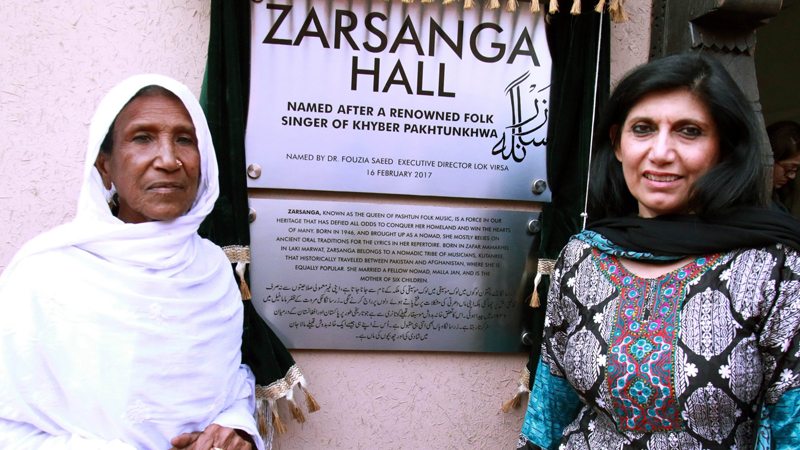 “Starting from human resource rationalisation and computerisation of the office management system, I cleansed the mess of the past 13 years in just a couple of months, with full support of a highly professional and dedicated board of governors,” she recalled. “Now as I am leaving, Lok Virsa is a vibrant hub of cultural activities with hundreds of people visiting it every day. Visitors to the Heritage Museum alone have gone up at least three times.”
“Starting from human resource rationalisation and computerisation of the office management system, I cleansed the mess of the past 13 years in just a couple of months, with full support of a highly professional and dedicated board of governors,” she recalled. “Now as I am leaving, Lok Virsa is a vibrant hub of cultural activities with hundreds of people visiting it every day. Visitors to the Heritage Museum alone have gone up at least three times.”
Cultural Programmes
Over the last three years, the frequency and quality of programmes at Lok Virsa have increased exponentially. Low budget innovative programmes have captured the attention of all. Almost every other day, there is an event open for public at Lok Virsa. Programmes organised in collaboration with the minority communities have been of special interest.
The Mother Languages Literature Festival held in February every year, on the occasion of International Mother Languages Day, has become a landmark event of Lok Virsa. Since the entire folk heritage is transferred to the next generation in its mother language, this event has a major relevance to Lok Virsa’s goals and objectives. Several special programs on dying languages, vulnerable crafts and musical instruments have been conducted during the last three years to give a sense of protection to the communities that are losing their heritage.
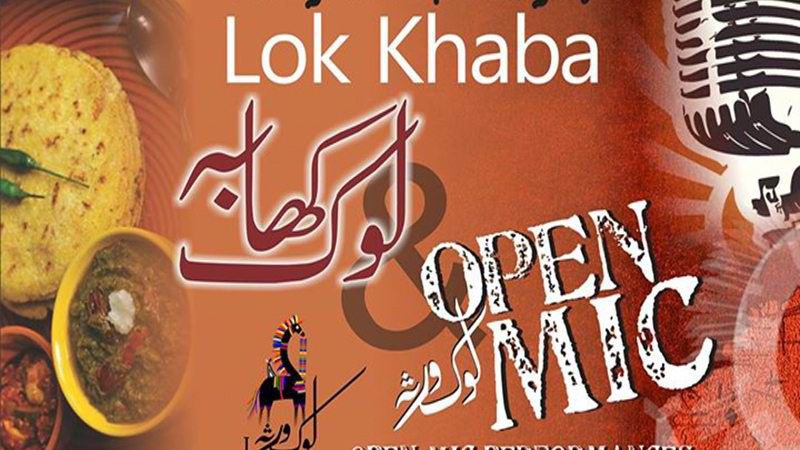 The annual ten-day mela had never been that organised and well-attended as it is now, with its attendance going up three times.
The annual ten-day mela had never been that organised and well-attended as it is now, with its attendance going up three times.
Religious and Ethnic Minorities
Currently, Lok Virsa celebrates festivals of almost every community where people from that segment of the society are invited and provided with a national platform to celebrate and promote their culture. While special arrangements are made to celebrate Muslim religious festivals of two Eids, Christmas is also celebrated every year for the Christian community and Holi for the Hindus. Special cultural nights for Hazara, Sindhis, Balochs, Pukhtuns, Marvaris, Bahais, Siraikis, Ismailis and many other communities are organised.
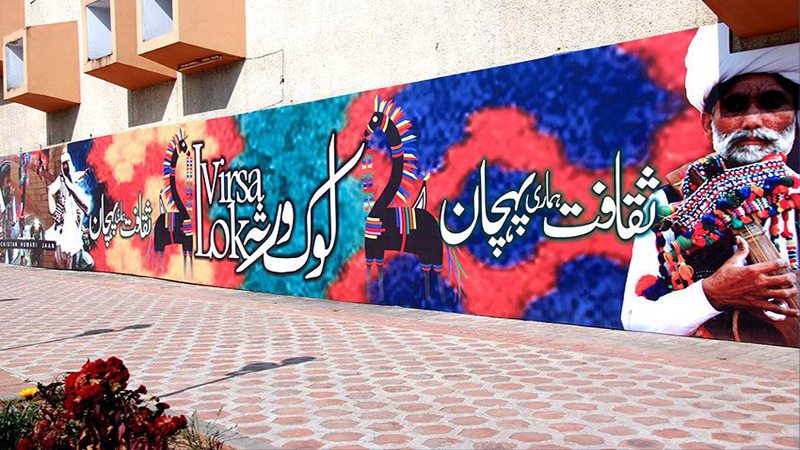 Hazara Diorama
Hazara Diorama
A three-dimensional creative diorama representing a traditional dwelling of the Hazara community from Balochistan, has been opened at the Heritage Museum in Shakarparian under the aegis of Lok Virsa.
Hazaras are the direct descendants of Turk and Mongol tribes, who now live mostly in the central regions of Afghanistan and Quetta, Pakistan. Traditional Hazara homes are made with stones and mud, plastered with light and dark colours. Floors are usually covered with rugs (Gilims) known as ‘Pathay Khan’, while family members use floor seating inside homes. In the diorama, an elderly woman can be seen sitting on ‘Toshak’ and smoking ‘Chilam’, while her daughter-in-law is working on some embroidery and singing a lullaby to her baby sleeping in a traditional cradle, called ‘Gawra’. A picture of an elderly male member is displayed above the Bukhari traditional fire place. Faiz Muhammad Katib’s photo is displayed in the diorama as well, who is a famous writer of the Hazara community.
New Talent
No new artists were introduced during the whole decade before Dr Fouzia Saeed took charge of Lok Virsa. While one new production was done in collaboration with Norway, only one book was launched in the last ten years. Since 2015, about 50 new productions have been carried out that are also available in the form of DVDs as well as on the internet. Also, around 20 new talents were discovered and introduced during these years.
 Outreach
Outreach
Under the leadership of Dr Fouzia Saeed, Lok Virsa progressed technologically. A vivid presence on social media has been witnessed during the last three years. Currently, every program of Lok Virsa is live streamed through the institution’s website and can be watched across the world. In addition to this, the DVDs produced by the institution carry English subtitles to cater to a wider audience.
During this tenure, Lok Virsa has forged excellent relations with all the provinces. Collaborations, exchange of resource persons, information and artists is a regular feature. In a show of solidarity, two major programs by Lok Virsa were funded by the KP and Balochistan governments.
International Linkages
Lok Virsa is now in the league of leading international academic and cultural institutions. Dr Fouzia Saeed successfully spearheaded a grant through the US Embassy in Islamabad and established linkages with the Smithsonian Institution in Washington DC. There has been a huge exchange of scholars and experts during the last three years, putting Lok Virsa on the international map once again.
E-Library
The library of Lok Virsa had gone dormant, and almost nobody would visit it. The library card catalogue has now been computerised and given link through Lok Virsa’s official website. People can access the library catalogue from their home through the internet and find out if any desired book is available in this highly specialised library on cultural heritage.
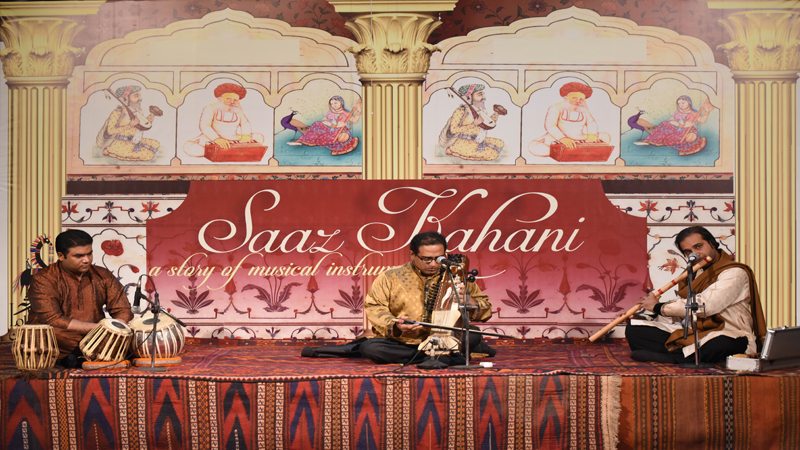 Faiz Heritage Library
Faiz Heritage Library
The Lok Virsa has named its library ‘Faiz Heritage Library’, as a tribute to the organisation’s founder Faiz Ahmed Faiz, whose vision and teachings have been a guiding light in Lok Virsa’s various endeavors and initiatives.
The library has a collection of over 32,000 books and journals. Additionally, a collection of 200 books published by Lok Virsa are also available in the library.
The library will serve students, researchers and scholars in their research work on the cultural heritage of Pakistan where numerous manuscripts, original research reports, field surveys and monographs on Pakistani culture are accessible to all.
Academic Work
Lok Virsa has been recognised by several universities for its academic work. Three books have already been published, while eight are in the pipeline with their research work already complete. A framework on ‘Indigenous Feminism’ was developed. An upcoming book, ‘Folk Heritage of Pakistan’ is likely to be a breakthrough and an instant hit amongst national as well as international readers.
Physical Infrastructure
The revamping of the institution’s physical infrastructure was also a big challenge for Dr Fouzia Saeed. Several dilapidated structures were revamped during the last three years, which have not only given a new look to the organisation’s premises but are also playing their part in the overall growth of the institution.
A hall previously being used as a godown for useless items was refurbished and named after Mai Bhagi. It is now being used for music programs.
Another hall that was newly built but still unfinished, was refurbished and named as Zarsanga Hall. It is now being used for conferences.
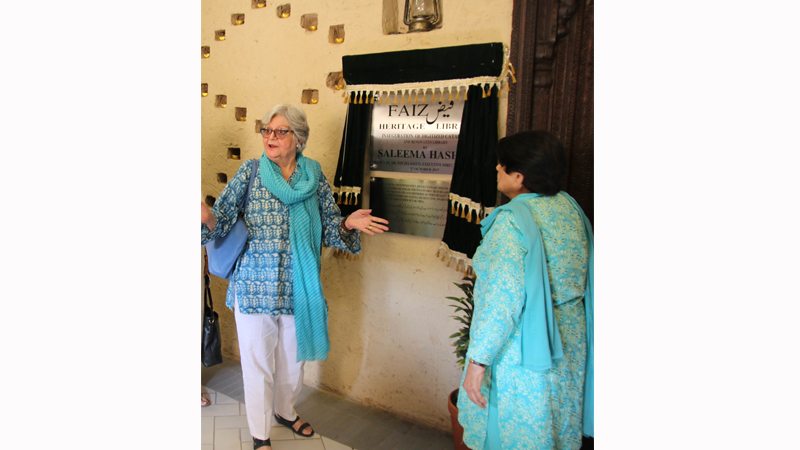 Hani Baloch Boardroom
Hani Baloch Boardroom
In a befitting tribute to one of the Baloch folk artists, the Lok Virsa named its newly renovated boardroom after legendary Baloch female folk artist, Hani Baloch.
Known for singing Ladok, Nazok and other devotional songs in weddings and important celebrations, Hani Baloch was born in Balochistan in 1915. It was in 1955 that she joined Radio Pakistan and earned mainstream recognition through her performances with other famous singers of the time.
‘Hani Baloch Boardroom’ is incorporated within the Research and Publications Wing to facilitate it and also serve a larger purpose of holding all official meetings of the Lok Virsa. It can accommodate up to 35 people at a time, for a multimedia presentation.
The rooftop theatre, which had not been used for the last 15 years had turned into an ugly ruin with serious leakage problems in the roof and water dripping right into the recording studio. It was reconstructed, renovated and turned into a splendid performing area. The renovated building was named after the legendary folk theatre performer, Bali Jatti.
Balli Jatti Theatre
To commemorate iconic theatre artist ‘Bali Jatti’, the Lok Virsa has named the rooftop theater as ‘Bali Jatti Rooftop Theatre’, which was reopened after a decade.
Bali Jatti was the first ever artist in Pakistan to have owned a traveling stage theatre. She also worked in collaboration with well-known folk singer Alam Lohar.
Bali Jatti Rooftop Theatre is one-of-its’s-kind theatre located at the heart of Islamabad, which offers breathtaking views of the surrounding areas and a fantastic opportunity for stage artists and musicians to perform and engage the urban audience. Lok Virsa has organised a series of special concerts with the name ‘Second Generation of Grand Masters’ at the rooftop theatre.
The sales shop of Lok Virsa was remodeled as well. Two more outlets were opened at the institute: one was Sharbat Point, selling all the traditional drinks, to educate our children on the relevance of tradition, and the other, which is in process of becoming a state-of-the-art books and CD shop.
Sharbat Point
Turning to traditional drinks, the Lok Virsa has opened ‘Sharbat Point’ at its premises.
Sharbat Point serves as a place to enjoy a variety of traditional drinks of the country. Now, one can easily get traditional drinks like Satuu ka Sharbat, Gur wali chaye, Sharbat-e-Sandal, Sharbat-e-Bazoori, Kahwwa, Rooh Afza, Kashmiri chaye and a lot more.
The initiative aims at promoting cultural heritage through the serving of traditional foods and beverages to the public, to get them familiar with traditional beverages.
 Heritage Shop
Heritage Shop
Enduring the tradition of promoting Pakistan’s rich culture, Lok Virsa opened the first-of-its-kind ‘Heritage Shop’ on the premises.
The shop is open for all visitors and offers a variety of traditional musical instruments, folk books, Lok Virsa publications, music CDs and videos.
The project has been conceptualised and executed with an aim to promote and safeguard the cultural values of Pakistan.
Lok Khaba
‘Lok Khaba’, a traditional food point at the premises of Lok Virsa, is now open for public. With a new roof shed, a renovated kitchen, new lighting and more seating area, the facility is soon going to turn into a vibrant hub, not only for traditional foods but also for chit-chat, exchange of ideas, encouraging new singers and a hangout for creative people.
New public toilets were also constructed with several water coolers and garbage cans installed, to make Lok Virsa a visitor-friendly facility.
Future Line of Action
According to Dr Fouzia Saeed, the focus will now be on the promotion of folk heritage of Pakistan, in a way that is relevant to people of all ages and backgrounds and provides more meaning, depth and rootedness to life.
The promotion of folk heritage will also create more space for expressing diversity within our culture, asserting cultural autonomy and dignity as well as contributing towards a stronger democracy and nation, she says.
The writer can be reached at farooq.azam.awan@gmail.com
Published in Daily Times, February 3rd 2018.